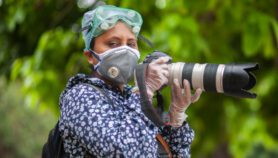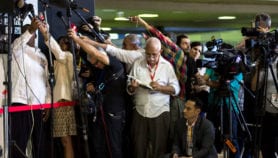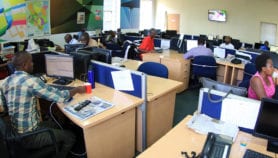By: Maryke Steffens
Send to a friend
The details you provide on this page will not be used to send unsolicited email, and will not be sold to a 3rd party. See privacy policy.
[MELBOURNE] The World Federation of Science Journalists (WFSJ) plans to extend its mentoring programme to Asia and Latin America.
In a speech to the World Conference of Science Journalists on Thursday (19 April), outgoing president Wilson da Silva highlighted the federation’s efforts to develop the skills and experience of developing world journalists over the past two years.
The programme, SjCOOP, matches inexperienced science journalists with skilled mentors, and has so far trained 60 people in 30 countries in Africa and the Middle East.
Nadia El-Awady, Middle East coordinator of SjCOOP, told SciDev.Net that many of the mentored journalists have made clear steps towards improving their skills and careers in the field.
"One of our Kenyan journalists has recently been published online in the journal Nature, and a Ugandan writer has published a book on poverty and its effect on girls in rural Uganda," she said.
She said that because there are so few science journalists in these regions, those that do work in the field feel isolated.
"By building networks they can exchange experiences and feel stronger, so they feel they can compete with areas like sports coverage and political coverage."
As a result of the success to date, da Silva announced that the WFSJ is currently seeking funding to expand the mentoring programme into Asia and Latin America.
"The mentoring programme has been a fantastic means of networking science journalists, and if it’s good for Africa and the Middle East, then it will benefit Latin America and Asia," said Jean-Marc Fleury, executive director of the WFSJ.
He added that there has already been interest from both regions, including from the Organization of American States, a body representing governments in North, Central and South America and the Caribbean.
"If they are keen, it is a good indication that eventually it will happen," Fleury told SciDev.Net.
In addition to SjCOOP, the WFSJ has encouraged the founding of new science journalist associations and, together with SciDev.Net, is developing an online course in science journalism.













